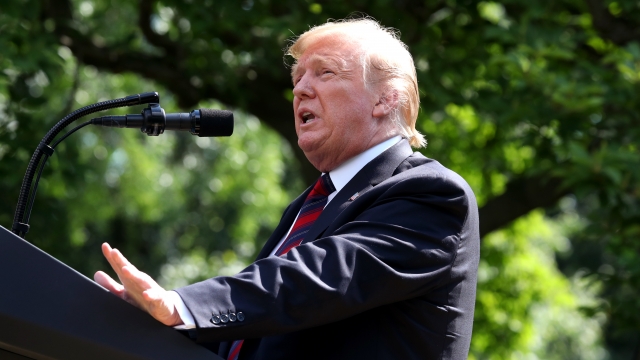"Mexico shouldn't allow millions of people to try and enter our country. And they could stop it very quickly, and I think they will. And if they won’t, we’re going to put tariffs on."
President Trump is pushing the boundaries of his emergency powers in order to put pressure on Mexico.
The White House is relying on the International Emergency Economic Powers Act of 1977, or IEEPA, to raise tariffs on imports from Mexico by 5 percent on June 10. It gives the president the ability to "investigate, regulate, or prohibit" foreign trade and exchanges.
And to unlock those powers, all President Trump has to do is declare that current immigration levels from Mexico pose "an unusual and extraordinary threat" to the U.S.
The IEEPA has been been invoked 54 times, but never before to impose tariffs. Presidents have mostly used it to give U.S. sanctions regimes a legal basis. There's no expiration date on the emergencies declared by the act — technically, the U.S. still considers the 1979 Iran hostage crisis an active emergency.
Still, there is some precedent for what President Trump is proposing: a Congressional Research Service report notes President Nixon used the IEEPA's precursor, the Trading With the Enemy Act, to levy new tariffs in 1971.
International trade is supposed to be Congress's responsibility, per the Constitution. But the legislature has never tried to counteract the White House on an emergency declared under the IEEPA: to do so would require a two-thirds majority vote in both chambers of Congress.


